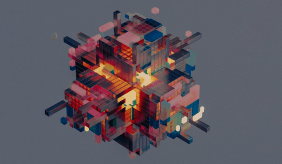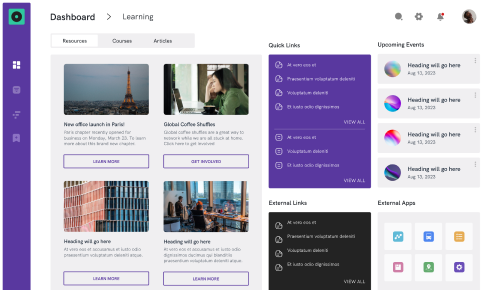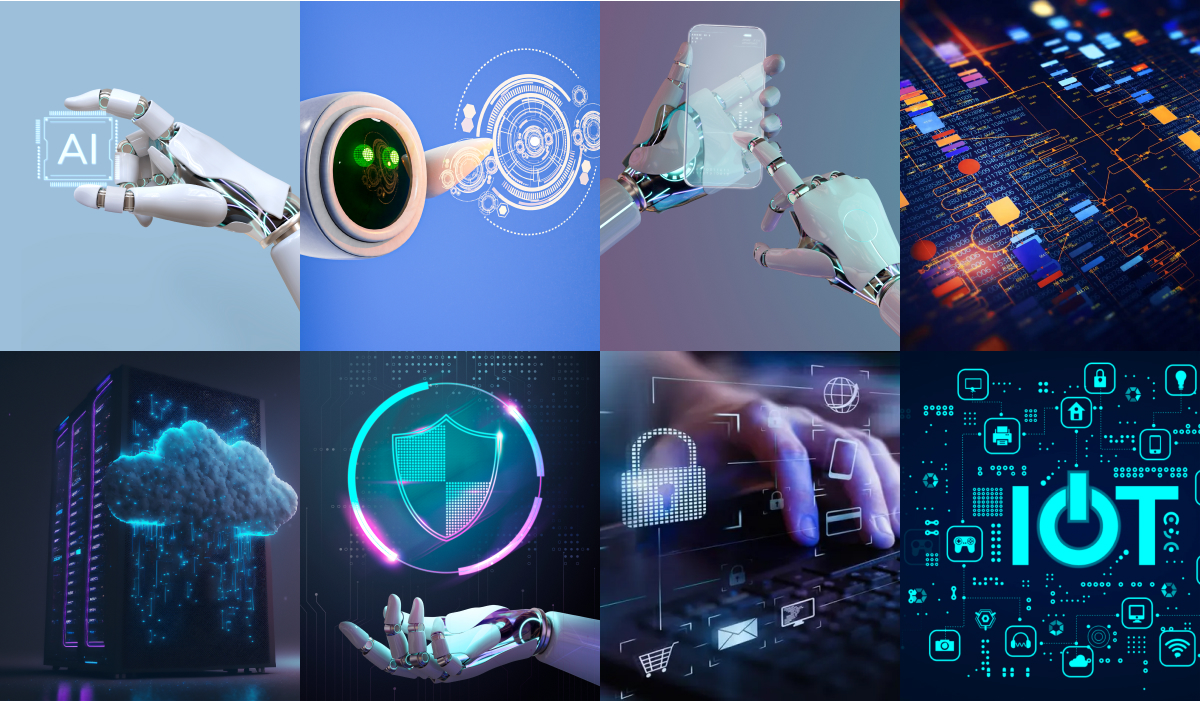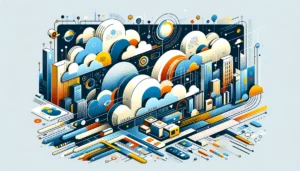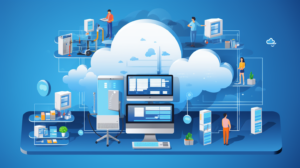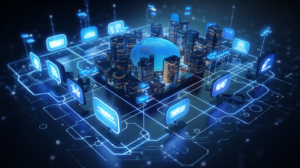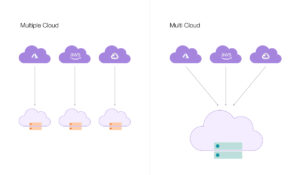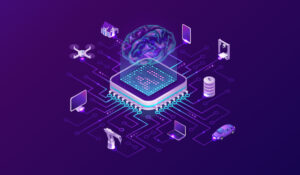8 Technology Trends You Should Be Considering In 2023
 By Anita Srinivasan
By Anita Srinivasan
 25th August, 2023
25th August, 2023
Cybersecurity
Cloud Computing Services
Machine Learning
Generative AI
Today, how you and I use technology for work and life has dramatically changed. Each year brings with it innovations and trends that have the potential to revolutionize industries and reshape our daily lives. As Leaders, IT professionals and companies, we are focused on technologies that will help us reduce further investments and acquire more returns.
In 2023, several technology trends have emerged that hold significant promise for transforming various sectors. This year began with renewed vigour and enthusiasm for adopting technologies that will be worthwhile for accelerating business performance.
In this blog, we will delve into eight technology trends you should consider this year.
Recently, one new trend that has been making waves in the tech world is Generative AI. It promises to drive sustainable growth, solve global challenges, and transform business operations significantly. Generative AI is the upgraded version of AI, which adds to the innovative capabilities of existing technologies like applied AI and industrial machine learning.
A June 2023 report by McKinsey titled The Economic Potential of Generative AI: The Next Productivity Frontier states generative AI and related models have transformed how businesses will use AI in the future.
For a better perspective, you can read our blog on privacy and security concerns on Generative AI.
Generative AI upgrades components within assistive technology by accelerating application development and making powerful capabilities available to the non-technical user base.
By looking at the latest predictions, we can deduce Generative AI is likely to add $4.4 trillion in economic value by harnessing specific use cases and other diverse uses like drafting email templates to increase overall productivity.
Although we have not seen significant tech investments over the past year, we can remain optimistic about future growth investment prospects. The year 2022 witnessed almost $1 trillion in tech investments, cementing our faith in the value potential of trending technologies.
Despite witnessing a decline in the adoption and uptake of applied AI, advanced connectivity, cloud, and edge computing, we can conclude that it is partially due to their maturity levels. Mature technologies are often exposed to short-term budget dynamics more than recent ones, such as climate and mobility technologies.
One example would be Open AI, which is predicted to go bankrupt by the end of 2024. The operational expenses for Open AI amount to $700,000 per day. Despite experiencing robust success initially, these financial struggles are hindering the company from achieving a revenue level that covers crucial expenditures.
Despite much noise about trending technologies, we must primarily focus on the value and potential of relevant technologies for our business progress. With a careful assessment of emerging landscapes and a balanced approach towards old and innovative technologies, we can harness innovation for sustainable growth.
Let us look at the current and upcoming trends around relevant technologies that tech companies should watch out for.
1. Applied AI
- AI models trained in machine learning can help streamline numerous mundane tasks. They can help segregate data, forecast predictions, and address automation issues for prompt and effective decision-making.
- From natural language processing (NLP) powering advanced chatbots and virtual assistants to AI-driven drug discovery and predictive analytics, AI is reshaping industries and enhancing decision-making processes.
- In 2022, we witnessed significant equity investments towards Applied AI worth $104 billion.
2. Automating Machine Learning
- The constantly emerging world of software and hardware technologies is expediting and eliminating risks involved in automated machine learning.
- In 2022, Machine Learning Automated solutions secured equity investments worth $3 Billion.
3. Generative AI
- Generative AI possesses capabilities that accelerate business operations significantly. The technology helps automate and expedite tasks by harnessing unstructured mixed modality data sets to help generate the latest content. Generative AI can use data sets to produce brand-new text, video, and code, among other things.
- In 2022, Generative AI secured equity investments of $5 Billion.
4. Next-Gen Software Development
- The latest software development tools possess capabilities to enhance application quality and accelerate the development process. These new tools can generate modern code deployment pipelines, automate code generation, and undertake testing, refactoring, and translation.
- One example is the new AI coding partner, the Git Hub Co-pilot tool that generates and refines the code you are working on. It helps solve problems, write tests, and explore new APIs without extensive search. It adapts to your coding method and accelerates the entire process.
- It uses OpenAI Codex, to gain context from written code, and then suggests new lines of code or overall functions.
- Low Code-No Code democratizes software development by accelerating the creation of prototypes, minimizing the development cycle, and fostering collaboration between technical and non-technical teams.
- In 2022, Next Gen Software Development secured equity investments of $2 Billion.
For a detailed insight into Inovar’s Low Code/No Code practices and approaches, download our exclusive whitepaper resource by clicking here.
5. Digital Trust Architecture and Identity
- Digital Trust solutions help companies establish and uphold customer trust; while using their data, digital products, and services.
- Digital trust architecture and identity management play pivotal roles in ensuring secure transactions, safeguarding sensitive data, and providing users with a seamless experience. As technology continues to evolve, so will the strategies and tools employed to build and maintain digital trust.
- Gmail has been attempting to eliminate phishing attacks by incorporating machine learning. If an email appears to be suspicious or a phishing attempt, Gmail will analyze and delay it as a part of its early phishing detection mechanism. Google has been able to intelligently incorporate AI that promptly detects malware and ransomware messages and blocks them immediately.
- The AI-powered Microsoft 365 Defender creates a defensive layer of protection to prevent active threats. It forms a parameter of inspection across numerous security data points like user accounts and end points and isolates the infected entity to prevent widespread impact. It mitigates both horizontal and vertical side-channel attacks.
- In 2022, Trust Architectures secured equity investments of $47 billion.
6. Cloud Computing Services
- Cloud and edge computing distributes work across multiple locations like hyper-scale remote data centres, regional centres, and local nodes to enhance latency, improve data transfer expenses, ensure data sovereignty regulations are complied with, and autonomy over data and security are adhered to.
- This trend is essential for applications like the Internet of Things (IoT), where real-time analysis is crucial. Edge computing also reduces the strain on centralized cloud systems.
- In 2022, Cloud Computing witnessed $84 Billion worth of equity investments and secured an adoption score of 4.
If you are considering migrating to the cloud, download our Cloud Migration Guide.
7. Cybersecurity
- Cybersecurity will witness exponential growth of approximately $198 billion in 2025. In the latter half of 2023, cybersecurity professionals will adopt a zero-trust approach towards external data as cybercrimes grow. AI will be a primary component to defend against cyberattacks.
- Cybersecurity is evolving with more advanced encryption methods, biometric authentication, and AI-powered threat detection. Protecting digital assets and sensitive information has become more critical in current times.
- According to the EU Agency for Cybersecurity, the ransomware business model has seen tremendous growth in the last ten years, and its projected expenditures will exceed $10 trillion by 2025.
Download our Security Case Study that we implemented for a large non-profit education organization.
8. Internet Of Things
- The year 2023 has witnessed more than $650 billion in investments in the Internet of Things, with $315 billion from Smart cities and $335 billion from industrial Internet.
- The technology sector will continue to grow despite economic constraints, compelling businesses to streamline their IoT (Internet of Things) expenditure to devices that offer significant ROI.
Download our IoT whitepaper to check on scenarios you can implement for your business.
Trending technologies of 2023 are the result of the rapid pace at which technology and innovation are evolving. From AI-driven upgrades to finding suitable solutions and upcoming technology patterns, these trends will change how we work, interact, and succeed in this digital landscape.
Technology experts believe 2023 will probably be an exhilarating year for witnessing rapid technological advancements in terms of new tools, their diverse capabilities and how businesses will leverage them to tackle bottlenecks and changes.
The selection and adoption of relevant technologies will pave the direction for the success of several industries in the future.
For more understanding of 2023 Cloud Native Trends, please refer to our informational video on Top Cloud Native Trends to Watch in 2023.
References:
- McKinsey Technology Trends Outlook 2023. (McKinsey Report)
- Introducing GitHub Copilot: your AI pair programmer. (GitHub)
- OpenAI might go bankrupt by end of 2024, ChatGPT costing over Rs 5.80 crore per day. (Business India Report)
- Gmail is bringing in AI security for where humans fail. (CNET)
